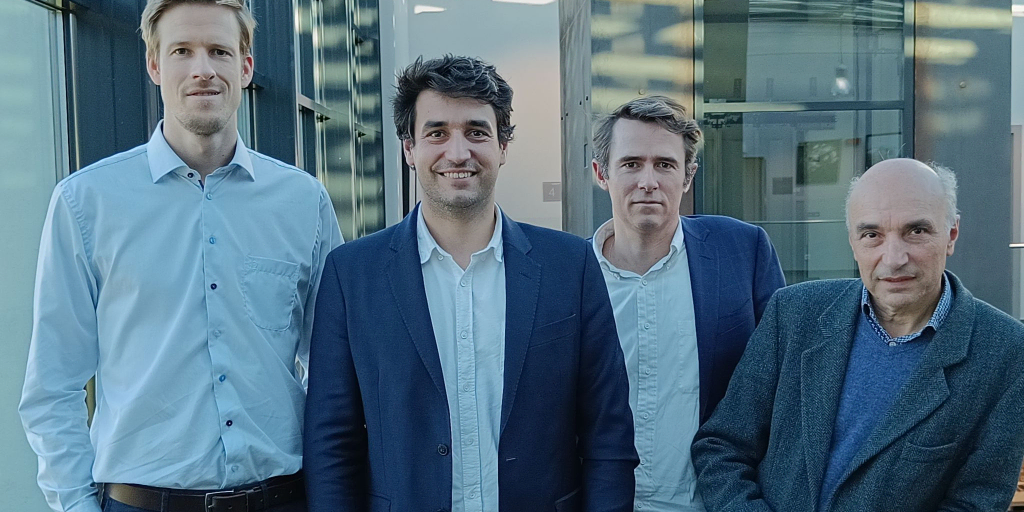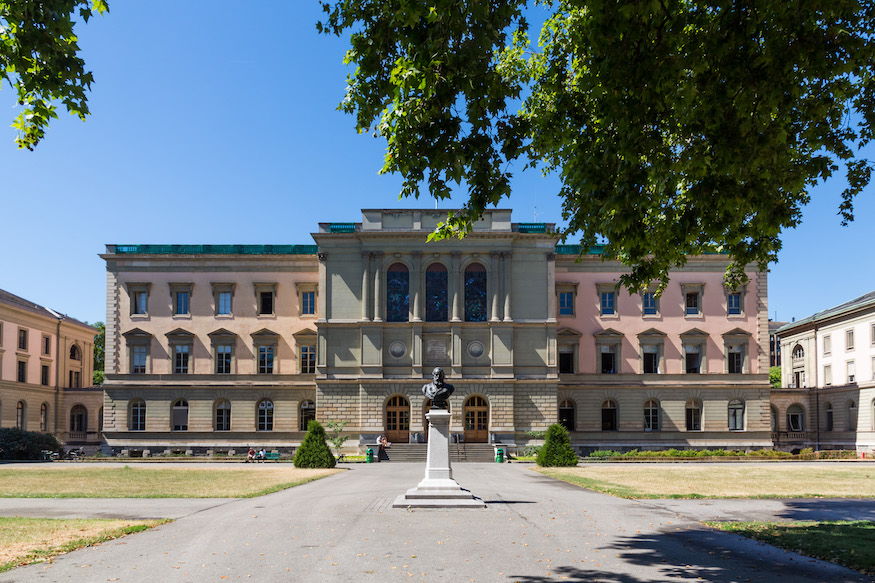Cancer survival rates have increased dramatically over the past century, but immunotherapies are not a holy grail — yet.

Cancer survival rates have improved dramatically over the past 60 years as more research has led to better treatment options — for leukaemia and myeloma, five-year survival rates have more than quadrupled between 1960 and 2016, according to the Leukaemia & Lymphoma Society.
But treatments like chemotherapy come with unpleasant side effects and immunotherapies continue to have significant limitations — solid tumours show limited response — and often a high cost.
MPC Therapeutics, spun out of University of Geneva, may have a solution for improving immunotherapies: targeting mitochondria, the power plants of cells, and altering the way cells generate energy.
“We develop small molecules that inhibit specifically the mitochondrial pyruvate carrier,” says Raphaël Martinou, co-founder and chief executive of MPC Therapeutics. “This is a target at the heart of cellular metabolism that has been shown in several labs to have therapeutics potential across several diseases, but we have a particular focus on cellular rejuvenation and improving cell therapies against cancer.”
MPC Therapeutics is initially focusing on T-cell therapies — which use T-cells, a part of the body’s own immune system, to fight cancer cells — but its approach has applications in other diseases too, Martinou says, and the spinout plans to diversify into alopecia next. Its approach is ex-vivo, Martinou explains, “because our outcome is considered a culture cell reagent as it is washed out of the culture before treatment is infused”.
That’s an advantage because it “limits any toxicity that may occur with an in vivo administration whilst having a less onerous regulatory burden. So, we believe ex vivo applications are the shortest path to market,” he says.
Martinou launched the spinout in 2018 based on the pioneering work of his father, Prof Jean-Claude Martinou, the director of the cell biology department at University of Geneva who is internationally recognised for his work in mitochondrial fusion and fission. Prof Martinou serves as chief scientific officer of MPC, and the father-son duo is joined by chief commercial officer Augustin de Bettignies.
Raphaël Martinou previously worked for nine years at chemical manufacturing company Air Liquide in various positions, most recently focusing on the design of a medical device with new digital services to help hospitals improve quality of care and operational performance.
Healthcare: a tech transfer speciality
Healthcare spinouts account for the largest share of spinouts globally, with GUV’s analysis showing they typically raise around half of all capital every year and never less than $10bn since 2019. Martinou ascribes this to the fact that companies “are doing less research in-house so have shifted towards acquiring and investing in startups within the ecosystem”.
Indeed, that’s a factor found around the world: Michael Poisel, executive director of PCI Ventures, told GUV on its Talking Tech Transfer podcast last week that University of Pennsylvania shifted its focus towards spinouts and specifically prepares them for acquisitions by corporates like pharmaceutical firms.
Martinou elaborates: “The university scene also offers a lot of promise, like in the mitochondria field, where it is continually growing and has reached a tipping point where we can now translate our knowledge into interesting applications.”
He adds: “I also think Covid-19 played a major part in the increase in healthcare investment. Because of the pandemic, healthcare is seen as a very important and purposeful investment which in turn garnered attraction from business angels as well as big biotechnology companies.”
Investment and partnerships
In early January, MPC Therapeutics closed a $1.6m seed round led by family office Plutus Investment Group, with commitments from angel investors. The spinout has also received support from the Swiss federal state, Martinou notes. “These administrative bodies have been instrumental in the establishment of MPC Therapeutics and helped launch our projects.”
Plutus, which focuses on healthcare companies, has built a portfolio of 17 companies since it was formed in 2021. Martinou says: “As one of our first institutional investors, Plutus Investment Group has been in a privileged position. We have built a trusted relationship and they are excited by the potential of MPC Therapeutics. We truly count on them and view them as active investors for our spinout.”

Strong ties with University of Geneva
MPC Therapeutics maintains a “special bond” with University of Geneva, Martinou declares. “This is largely down to the fact that our chief scientific officer and my father, Jean-Claude Martinou, has been a researcher and professor at the university’s Faculty of Sciences for over two decades.”
He adds: “The university served as a home for innovation and was able to turn our spinout from a research project to more of a project development. The university has been very helpful and supportive, for instance, we have a patent that is co-owned between University of Geneva and MPC Therapeutics. We also have an exclusive license on the shares of the university through this patent as well as a deal with the tech transfer office.”
Looking ahead, Martinou says: “We have some very exciting data and we are garnering a lot of industrial traction, as many CAR-T cell manufacturers have shown interest. So, as we prepare for our next series A round we will be actively seeking future investors, so please get in touch if you are interested.”








